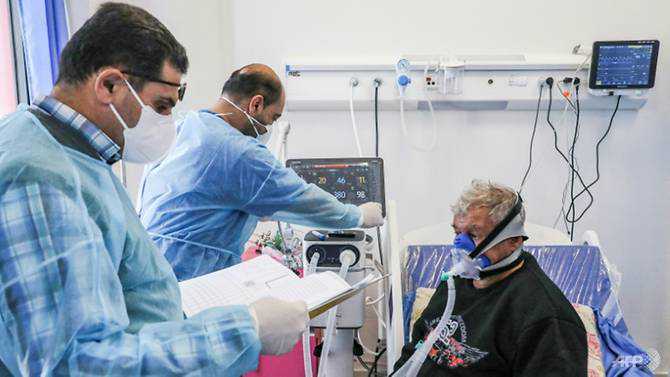COVID-19 reinfection rare, more prevalent in people over 65: Study
19 March, 2021

Surviving COVID-19 protects a lot of people against reinfection designed for at least six months, but elderly patients are more likely to be laid low simply by the virus another time, researchers reported on Thursday (Mar 18).
An assessment of reinfection prices in Denmark last year showed that just over half of a per cent of individuals who tested positive for COVID-19 through the 1st wave from March to May did so again through the second wave, from September to December.
Among these, the experts found that initial infection with COVID-19 was more likely to bestow 80 % safeguard from reinfection among people aged under 65, but that dropped to just 47 per cent in older people.
"We did not identify anything to point that coverage against reinfection declines within half a year of experiencing COVID-19," explained Daniela Michlmayr, a researcher at the Staten Serum Institute in Denmark and co-author of a study in The Lancet.
Free polymerase chain response (PCR) testing available to anyone in Denmark irrespective of symptoms is a central pillar of the countrywide technique for controlling COVID-19.
More than two-thirds of the population - about 4 million persons - were tested in 2020.
Ratios of positive and negative test results - taking account of variations in years, sex and period since illness - were used to create estimates of safety against reinfection.
The rate of infection was five times larger for folks who tested negative through the spring surge of the virus and then positive through the second wave.
Of the more than 9,000 persons aged under 65 who tested positive in the initially wave, only 55 - or 0.6 per cent - tested positive again through the second wave.
This compared to 3.6 % of people in this generation who tested positive through the second wave however, not in the first.
PROTECTING THE ELDERLY
The researchers said this meant that initial infection with COVID-19 was likely to bestow 80 per cent protection from reinfection among people aged under 65.
For all those aged over 65, however, the cover level diminished sharply.
Of the a lot more than 1,900 over-65s who tested great through the first wave, 17 (0.88 %) tested positive again through the second.
This in comparison to 1,866 out greater than 90,000 over-65s (2 per cent) who tested positive through the second wave however, not the first - a protection difference of 47 per cent.
"Our study confirms just what a amount of others appeared to suggest: Reinfection with COVID-19 is rare in younger, healthy persons," stated Steen Ethelberg from the Statens Serum Institute in Denmark.
"But the elderly are in greater risk of catching it once again," he added.
"Our findings explain how important it really is to implement policies to protect the elderly through the pandemic."
The researchers weren't able to estimate protection against reinfection with COVID-19 variants - some of them more transmissible - that didn't emerge until after the period studied.
"Many will look for the data ... comparatively alarming," Professors Rosemary J Boyton and Daniel M Altmann from Imperial College or university London explained in a comment, as well in The Lancet.
"Only 80 % protection from reinfection generally, decreasing to 47 % in people aged 65 years and older, are extra concerning figures than made available from previous studies."
"These data are all confirmation, if it were needed, that for SARS-CoV-2 the desire of protective immunity through natural infections may not be in your reach and a worldwide vaccination programme with high efficacy vaccines may be the enduring solution," they wrote.
Source: www.channelnewsasia.com
TAG(s):
